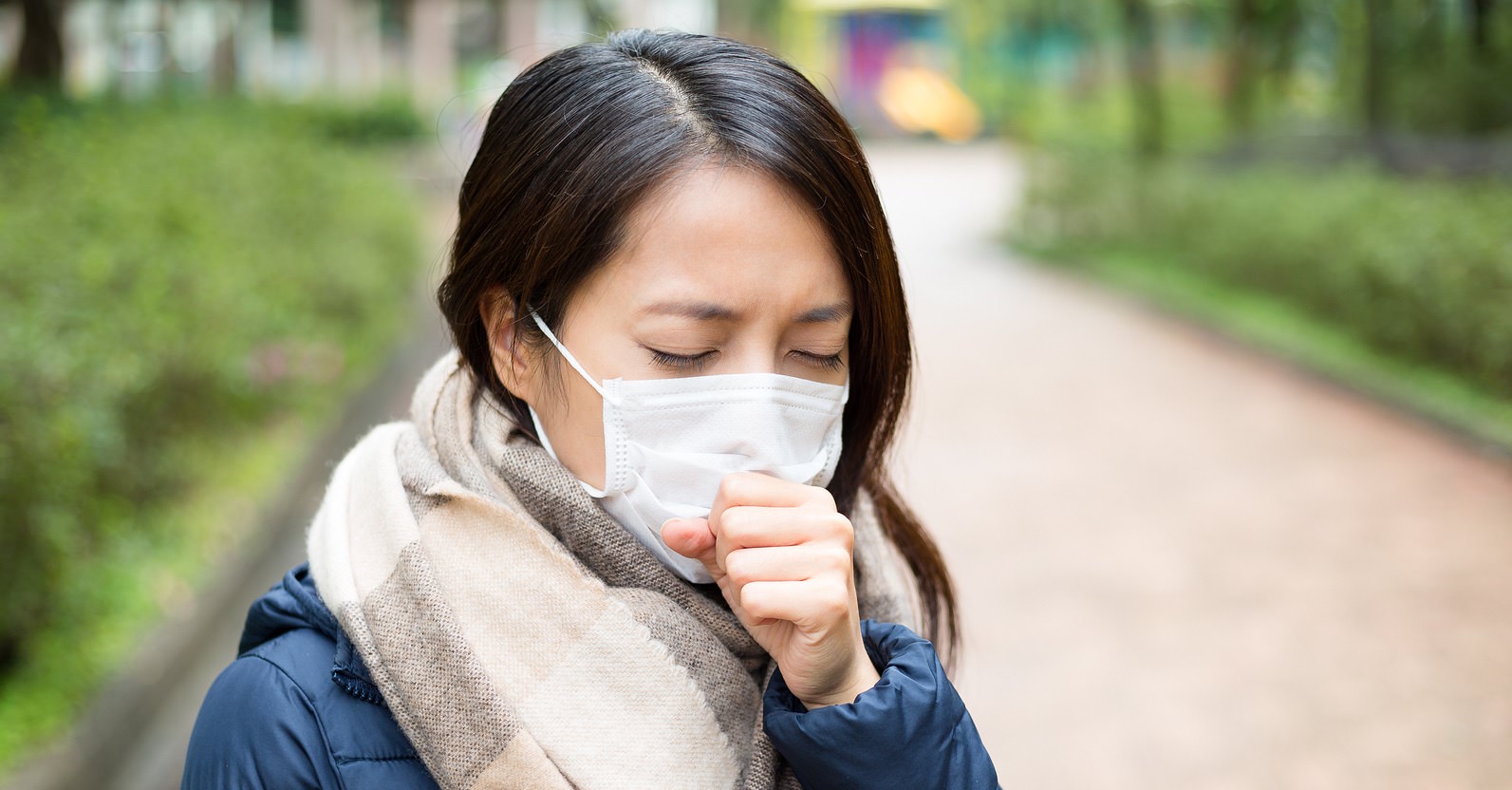
People are still suffering from the flu. Many are understandably worried sick, especially for their children. That’s because there are reports almost every day about additional deaths from this year’s influenza epidemic. And it’s not just newborns or the elderly. Many otherwise healthy young people and adults have died from this H3N2 virus. The CDC is now telling us that the vaccine is better than originally projected, though numbers from Australia and Canada are less optimistic. Flu myths and misconceptions have a lot of people up in arms.
Were We Prepared for This Epidemic?
This year’s flu season caught public health officials off guard. They did not anticipate such widespread outbreaks would stretch emergency rooms beyond their limits.
Vaccine makers thought this year’s flu shot would protect people from infection. They didn’t count on the dominant strain of flu, H3N2, mutating.
How Good Is the Flu Shot This Year?
Early warning signals from Australia should have alerted U.S. experts that we could be in for trouble. The flu season in the southern hemisphere runs about six months ahead of ours. In Australia, the vaccine was only about 10 percent effective against H3N2, which caused most of the serious flu cases there (New England Journal of Medicine, Jan. 4, 2018).
Evidence from Canada shows a similar situation in North America. Preliminary reports indicate that the flu vaccine is about 10 percent effective against H3N2 in adults under 65 (Eurosurveilance, Feb. 2018).
The CDC Contradicts the Canadians and the Aussies:
A preliminary report from the CDC (Feb. 16, 2018) states that the vaccine effectiveness against influenza A and B was 36%. It was 25% effective against the killer H3N2 type A flu virus. The experts at the CDC recognize that this interim report may not reflect the actual vaccine effectiveness. We will likely have to wait several months to know the final results.
Is It Too Late to Get Vaccinated?
Virtually every message we have heard over the last six weeks tells us to get a flu shot. We are reminded that this year’s flu season is likely to last several more weeks. Even though the vaccine did not perform as well as hoped, public health officials insist that the vaccination will lessen the severity of the illness even if it won’t always prevent infection. How strong is the evidence? Here is a reader who wants to know:
Do Flu Shots Make Influenza Less Severe?
Q. In most of the news coverage of flu outbreaks, I’ve seen a recommendation to get a flu shot even if it’s not a good match. The announcer always says that even if it doesn’t prevent illness, the vaccine will make your flu symptoms less severe. Is that true? Is there any good quality research to support this assertion?
We searched the medical literature to try to find a solid scientific answer to this important question. One of the largest and most recent studies came from France.
Flu Myths and Misconceptions:
These French investigators have expressed consternation that there has been so little high-quality research on this question (Vaccine, April 11, 2017):
“Surprisingly, very few studies have addressed the question of whether the vaccine mitigates influenza severity among those who develop the illness despite being vaccinated.”
The researchers wanted to know if a flu shot would result in less severe illness such as pneumonia or hospitalization. The study they conducted on 2,277 French seniors found that three-fourths of the seniors who tested positive for influenza had been immunized.
Those who had received the shot were less likely to suffer headaches from the flu. This small benefit led the scientists to conclude:
“Our results are consistent with previous studies reporting limited or no efficacy of the influenza vaccine in reducing illness severity at onset of symptoms.”
They call for influenza vaccines to provide better protection.
The Other Side:
We were taken to task by a reader who questioned our reliance on the latest French research on this topic:
“I have come to rely on your site and columns for unbiased yet natural-leaning information on health issues. But your column today, February 18, 2018, in The Seattle Times, has given me second thoughts about your accuracy and research skills. You featured a question about the effectiveness of the flu vaccine in lessening the severity of the illness, and claimed both that “(n)o one knows whether this year’s flu shot will lessen symptom severity.” and that French scientists found very little symptom reduction among more than 2,000 patients in their study.
“I must call b.s. You are cherry-picking quotations and research, and skewing your response to the question. Especially in this year of pandemic flu, this is very irresponsible on your part.
“In a matter of minutes, I was able to find a study from August 2015 from The American Society of Microbiology titled “Influenza Vaccine, While Not 100% Effective, May Reduce Severity of Flu Symptoms;” an article dated May 25, 2017, titled “New CDC Study Shows Flu Vaccine Reduces Severe Outcomes in Hospitalized Patients”; and, from Science New in January, 2018, quoting The Canadian Medical Association Journal: “Repeated vaccination for influenza in older adults reduced the severity of the virus and reduced hospital admissions, found new research.”
“Your response in this week’s column may serve to discourage many people from getting the vaccine and failing to receive the benefits they most desperately deserve. Some of those people will die.”
To be fair, other researchers have reported less severe symptoms if people were vaccinated. One study reported a reduction in ICU admissions and deaths among hospitalized patients in Spain (Clinical Infectious Diseases, July, 2013).
There are studies that show virtually no benefit in terms of flu symptom severity. And other studies that do show benefit. What shocked us the most, though, was that there were so few large-scale well conducted trials. When we hear news anchors state unequivocally that a flu shot will reduce symptoms and severity of the flu we would like to see much better evidence to support such claims.
Another Flu Myth and Misconception: Hand Washing Will Prevent the Flu!
The other advice that public health officials always give at this time of year is that hand-washing is critical. Washing your hands is a good practice any time, but just how well does it protect people against influenza?
This question is hard to study, but some scientists have tackled it. A review of the research found that a combination of hand washing and face masks provided statistically significant protection against influenza (Epidemiology and Infection, May 2014). Hand hygiene alone was not effective. The authors conclude:
“the modest efficacy of hand hygiene suggests that additional measures besides hand hygiene may also be important to control influenza.”
Research from Hong Kong demonstrates that face masks together with hand washing helps prevent household transmission of flu (Annals of Internal Medicine, Oct. 6, 2009).

Woman wears facemask outdoors
Would You Wear A Face Mask?
Americans don’t generally embrace face masks the way people in China or Japan appear to. There haven’t been public health messages in the U.S. endorsing face masks. But new research suggests that there should be.
A person with the flu doesn’t have to cough or sneeze to spread viruses. Researchers at the University of Maryland discovered that simply breathing puts virus-containing droplets into the air (Proceedings of the National Academy of Sciences, Jan. 2018). The lead author suggests:
“So when someone is coming down with influenza, they should go home and not remain in the workplace and infect others.”
Sadly, many people cannot afford to stay home when they are sick. They may not get paid sick leave from their employer. They may be expected to show up no matter how sick they are (or contagious).
It is estimated that 40 million Americans fit this category. Most industrialized countries don’t want people who are sick spreading their infections to others. Perhaps it’s time for the U.S. to contemplate a more prudent approach to sick leave.
Readers Share Their Perspective:
Linda in NC wants to know about flu myths and misconceptions:
“Thanks for your ongoing dispensing of medical research reports addressing various issues, including issues that may be controversial. In general, I think we want simple and absolute solutions to problems, especially medical ones, and life just isn’t like that very often. The mysteries of the human body and mind are still often that — mysteries.
“You are willing to take the heat for providing medical research information that may conflict with the general trend, even when it may result in critical or angry responses. I like that about you! I work in the medical field and see the need for responsible but critical thinking. We have the responsibility to stay as informed as possible. Thanks for helping.”
Susan in Virginia got Tamiflu early:
“A couple of years ago I went to a scheduled morning appointment with my doctor. The nurse took my temperature as a matter of routine, and discovered I had some fever. I was surprised because I did not feel sick yet.
“Because it was flu season, I was tested and the results showed that I tested positive for type A (I had received the flu vaccine a few weeks earlier). I did take the Tamiflu that was prescribed. I went home and went to bed, and started feeling worse and worse. I tried to tough it out, thinking the fever would help fight the virus, but by the evening I was feeling so bad that I took ibuprofen.
“When I woke up the next morning I was feeling much better and felt more well as the day went on. Within a couple of days I was feeling pretty much normal! I am sure that taking Tamiflu so early in the course of the flu helped tremendously!”
What has been your experience with the flu this year? What do you do to prevent catching the flu? Would you wear a facemask? What about the flu shot? Did it prevent the flu or lessen the severity of the symptoms? Share your story below in the comment section.

